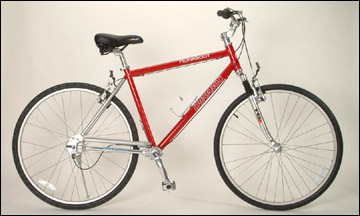In the middle of the twentieth century, critical theorist John Dewey put forth his then-radical idea that experiences equal education. Dewey, considered the father of the progressive movement, posited that interaction and continuity were the two key traits that made up an educational experience. Even today, while educators use different names for those same ideas (interaction=engagement, continuity=structure), Dewey’s legacy lives on. But it’s not just for those of us in the classroom. Dewey’s experiential education model is undergoing a renaissance of sorts at the post-secondary level, with more colleges and universities touting that they believe in it and use it to provide students with memorable learning. Even for working writers and parents, the thoughts that Dewey developed have implications that can provide lasting benefits to us in our average, non-academic lives.
To begin, experiences form the foundation upon which all truly great literature is built. Even if those experiences are imagined or exaggerated, they nonetheless constitute the building blocks of fiction, poetry, and plays around the world. For those of us in the everyday world, the small experiences can generate great writing.
 This summer, I’ve been riding bikes with my sons. We started small, with a few laps around our block here, and recently, we sojourned to their grandmother’s house about a mile away. The bike riding sessions have given rise to those metaphorical, time-transcending conversations that parents have always found meaningful: learning to ride a bicycle safely is a parallel to one’s larger life, after all. Lessons in persistence, balance, confidence, care, and initiative can all be heard when one is teaching others about basic cycling. Uphill grades can’t be conquered without perseverance, and the reward is always that downhill gust of face-breeze. Bicycles and their allegorical implications have been used by writers for years, and so, I haven’t bothered to write a poem about this experience yet. I feel that it’s been covered entirely too well by others before me. The poem that this experience generates will probably not be the old cliche about “letting go of the baby bird” or some similar tripe, but I sense that something from our time together will mold itself into poetry before the summer’s out. It just needs some time for creative gestation.
This summer, I’ve been riding bikes with my sons. We started small, with a few laps around our block here, and recently, we sojourned to their grandmother’s house about a mile away. The bike riding sessions have given rise to those metaphorical, time-transcending conversations that parents have always found meaningful: learning to ride a bicycle safely is a parallel to one’s larger life, after all. Lessons in persistence, balance, confidence, care, and initiative can all be heard when one is teaching others about basic cycling. Uphill grades can’t be conquered without perseverance, and the reward is always that downhill gust of face-breeze. Bicycles and their allegorical implications have been used by writers for years, and so, I haven’t bothered to write a poem about this experience yet. I feel that it’s been covered entirely too well by others before me. The poem that this experience generates will probably not be the old cliche about “letting go of the baby bird” or some similar tripe, but I sense that something from our time together will mold itself into poetry before the summer’s out. It just needs some time for creative gestation.
 Last summer, my oldest son and I spent almost every day kayaking. There are lakes all over our town, and we would set out on Lake Martha, carving a trail to the park across the lake from our launch point. The park made for some great play time, and afterward, we would paddle back. This experience also bore a number of universal lessons that later worked themselves into poetry — the landmarks around the lake were particularly symbolic of different stages in life: the park being childhood, the high weeds being adolescence, the tall offices being adulthood, and finally, the hospital just before home. As you might have guessed, the experiences of our kayaking journeys lent themselves toward poetry.
Last summer, my oldest son and I spent almost every day kayaking. There are lakes all over our town, and we would set out on Lake Martha, carving a trail to the park across the lake from our launch point. The park made for some great play time, and afterward, we would paddle back. This experience also bore a number of universal lessons that later worked themselves into poetry — the landmarks around the lake were particularly symbolic of different stages in life: the park being childhood, the high weeds being adolescence, the tall offices being adulthood, and finally, the hospital just before home. As you might have guessed, the experiences of our kayaking journeys lent themselves toward poetry.
I relate these two examples to reinforce the larger point: Yes, experience equals education, but more than that, experience equals life equals literature. Only by living can we truly write in a way that will relate to others. Until next time — to write great, live great.
I actually teach this to my young students in order to help them understand what they read. Literature is life. Great view.